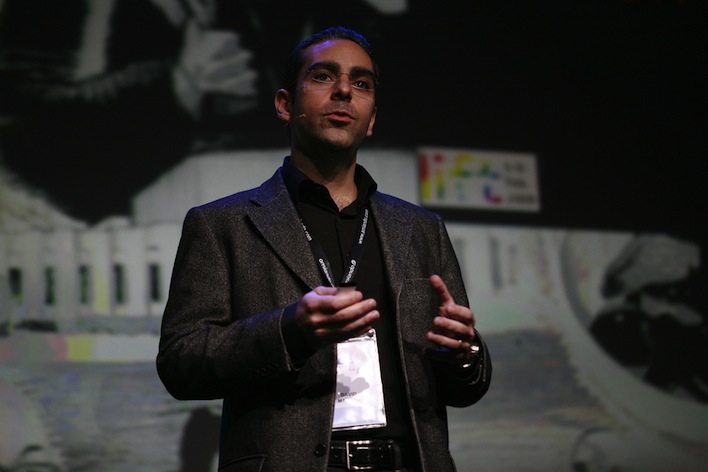PayPal president David Marcus thinks people are mistaken thinking Bitcoin is a currency.
Marcus spoke at LeWeb in Paris today saying that until Bitcoin is regulated and more stable, it is not a currency. As it stands, Bitcoin is more of an asset, one that Marcus holds himself. He explained:
People are confused. They think because it’s called cryptocurrency [that] it’s a currency. I don’t think it is a currency. It’s a store of value, a distributed ledger. It’s a great place to put assets, especially in places like Argentina with 40 percent inflation, where $1 today is worth 60 cents in a year, and a government’s currency does not hold value. It’s also a good investment vehicle if you have an appetite for risk. But it won’t be a currency until volatility slows down. Whenever the regulatory framework is clearer, and the volatility comes down, then we’ll consider it.
Because of this, you shouldn’t expect to be seeing PayPal accept Bitcoin any time soon. Marcus explained that you won’t be able to buy things with Bitcoin through PayPal until it becomes a currency and more merchants actually start accepting it.
But while you’re not going to be buying all of your Christmas gifts this year with the decentralized “money” (though I totally challenge anyone to do so), quite a few businesses and institutions are warming up to Bitcoin.
In Beijing, Cafe Bar 2nd Place will let you buy beer (and its other offerings) with Bitcoin; Australian car-manufacturer Tomcar will let you buy off-road vehicles with Bitcoin; Finnish development firm SC5 will pay its developers in Bitcoin; the University of Nicosia accepts Bitcoin tuition (and now offers a master in digital currency); and you can buy games on “people’s” video game machine, the Android microconsole Ouya, with Bitcoin.
In the same payment vein, Marcus also poo-poo-ed near-field communication (NFC), saying that it is past its prime. He sees no difference between getting out your credit card and swiping versus getting out your phone and tapping. It doesn’t solve a problem, and thus will never really take off.
Instead, Marcus thinks there needs to be a revolution in what we consider a payment terminal. In his mind, people shouldn’t stand in line anymore — we really don’t need to go to a specific area in the store to check out.
Of course, this brings to mind Apple’s roaming checkout attendants who walk the store with portable payment devices. But no, Marcus takes it a step farther and suggests that the retail stores of tomorrow will simply be showrooms that facilitate online transactions.
Perhaps that’s just a little too far. As it is, companies like Amazon and Google are creating same-day local delivery services because people love instant gratification. That’s one of the main reasons people still buy in the store: They want to bring the product home that same day.
However, a self-check-out payment system controlled by the mobile phone could be an interesting solution to the cashier line. Imagine a universal payments system where you walk into the store (obviously, with your reusable tote), scan the item you want, click a button, and walk out.
Of course, the presence of cashiers is a good thief intimidation factor. Stores would have to install new forms of security to keep people from giving themselves the five-finger discount.
Marcus explained that he hopes to make payments “invisible” through PayPal. Wherever in-store payments and the ever-changing Bitcoin end up, we’re sure the payments company will be right there trying to get in on the action.
hat tip CNET
VentureBeat's mission is to be a digital town square for technical decision-makers to gain knowledge about transformative enterprise technology and transact. Learn More

